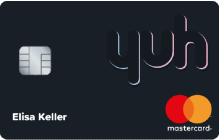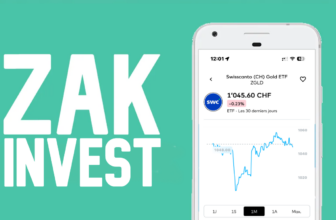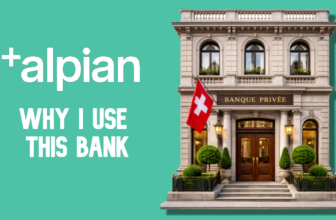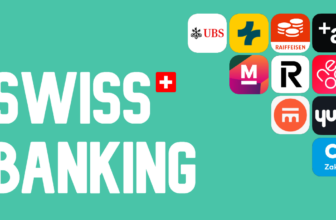
Suisse private banking, does that ring a bell? Maybe you immediately think of a service reserved for the ultra-wealthy, with elegant offices, advisors in suits, and high fees. Or you may wonder if it’s really worth it compared to a regular bank, especially if you’re already managing your investments yourself.
By the way, if you’re already investing via Swissquote or another online trading platform, what would be the benefit of a private bank? Does a private advisor really add value compared to self-management? And what about the fees, which are often higher in private banking?
These are valid questions, and they often come up. Historically, Swiss private banks were reserved for wealthy clients with at least 1 million CHF and offered tailored services, but sometimes at opaque costs. Today, alternatives like Alpian offer a more modern and accessible approach, combining human advice and digital management, with reduced fees and access from just CHF 2,000.
So, what exactly is a Swiss private bank? What are its benefits and limitations? Could it be interesting for you, even if you’re already investing on your own? In this article, we cover the following points:
- What a private bank is and how it works
- The pros and cons compared to regular banks and platforms like Swissquote
- Why new private banks are more accessible than before
- How they can help you manage and transfer your wealth
- How to choose the best option for you
If you’ve ever wondered about these questions, or just want to better understand how private banking works in Switzerland, you’re in the right place. 😉
Understanding Private Banking
Definition and Function
A private bank is a licensed financial institution, specializing in tailored wealth management for clients with a certain level of assets. Unlike traditional banks, which cater to a broad audience with standardized solutions, private banking offers personalized support, taking into account your financial goals, your asset situation, and your risk tolerance.
In Switzerland, private banks are regulated and supervised by FINMA (Swiss Financial Market Supervisory Authority), ensuring a strict framework for security, transparency, and compliance. This strengthens trust in these institutions, particularly in terms of investor protection and anti-money laundering efforts.
The main advantage of private banking lies in its ability to provide a tailored investment strategy. Your money is not simply placed in a savings account or a generic portfolio, but managed according to a specific approach aligned with your short, medium, and long-term objectives.
Private bank services include:
✅ Personalized portfolio management: Asset allocation based on your situation and investment horizon.
✅ Tax optimization and estate planning: Solutions for effectively transferring your wealth.
✅ Access to diversified investment opportunities: ETFs, private bonds, private equity, real estate investments, and multi-currency options.
✅ Human support: A dedicated advisor who adjusts your strategy based on market developments.
Differences with Retail Banking and Investment Banking
Private banks are clearly distinguished from other types of financial institutions:
| Bank Type | Target Clients | Main Services | Approach |
|---|---|---|---|
| Retail Bank | General public, SMEs | Current Accounts, Loans, Savings | Standardized |
| Investment Bank | Corporates, institutions | Financing, Trading, Mergers & Acquisitions | Complex Strategies |
| Private Bank | High-net-worth clients | Wealth Management, Taxation, Diversified Investments | Personalized |
One of the key differences is in support:
- A retail bank offers standard products (bank account, debit card, mortgage loan), with a generalist advisor.
- An investment bank focuses on companies and financial markets.
- A private bank supports you in all dimensions of your wealth, with solutions tailored to your profile and objectives.
If you’re already using Swissquote or another online investment platform, you’re managing your portfolio autonomously. In contrast, a private bank takes care of management for you, adjusting your strategy based on market opportunities.
💡 Conclusion: What is a Private Bank?
- A private bank offers tailored wealth management compared to traditional banks.
- You benefit from diversified and optimized investments for your profile.
- With digital private banks, wealth management becomes more accessible and flexible, without compromising expertise.
How to Enter Private Banking?
Access Conditions: Who Can Open an Account in a Private Bank?
For a long time, private banking in Switzerland was reserved for an elite: only clients with hundreds of thousands, or even more than one million CHF in investable assets could access it. Entry was often by invitation, with strict requirements and an ultra-exclusive approach.
But this model is evolving. Today, the private banking sector has opened up to a more diverse clientele. Some institutions still maintain a very high-end positioning — this is the case for historic institutions like Pictet, Lombard Odier, or Julius Baer — but new, more accessible alternatives have emerged.
This is especially true for digital private banks, like Alpian, which lower the entry barrier to CHF 2,000. This allows investors with more modest capital to benefit from professional support, a structured management strategy, and access to optimized portfolios, all through a digital interface.
💡 Good to know:
You no longer need to be a multi-millionaire to enjoy the benefits of private banking in Switzerland. Today, your objectives, your profile, and your need for support matter more than the exact amount of your wealth.
 Alpian Promo Code: ALPNEO – Get 120 CHF
Alpian Promo Code: ALPNEO – Get 120 CHF
Don’t have an Alpian account yet? Use the promo code ALPNEO before March 31, 2026 to get 120 CHF in bonus 🙌
How does the bonus work?
– 55 CHF after depositing at least 500 CHF.
– Up to 65 CHF in investment fee credits.
✅ The Alpian account is free and multi-currency (CHF, EUR, USD, GBP), with an optional Metal Visa Debit card.
Get 120 CHF with Alpian ➡️
Typical Client Profiles of Private Banks
Private banking is not just reserved for billionaires or large families. In fact, several profiles can benefit from this type of support:
✅ Entrepreneurs and Self-employed
Business owners and the self-employed can use private banking to manage their company’s liquidity, diversify their investments, and structure the transfer of their wealth. A private advisor can help them optimize their taxes and prepare for a strategic exit (company sale, inheritance transfer, etc.).
✅ High-income Professionals and Executives
Employees with comfortable income, such as executives, lawyers, doctors, or engineers, can also benefit from private management. They can optimize their savings, structure an investment portfolio, and secure their retirement with a long-term strategy.
✅ Expatriates and Cross-border Workers
People living in Switzerland or abroad with income in multiple currencies can use private banking to efficiently manage their international wealth. Some banks offer multi-currency solutions and tax advice tailored to international residents.
✅ Families Looking to Transfer Their Wealth
Private banking is particularly useful for those who want to organize the transfer of their wealth to their children or heirs. Estate planning, creation of trusts, tax optimization: an advisor can structure wealth management across generations.
✅ Investors Who Want to Delegate Portfolio Management
If you already invest via Swissquote or another trading platform, but want personalized support and a managed strategy, a private bank may be a good alternative. Instead of managing your assets alone, you have an expert who adjusts your investments based on market conditions and your objectives.
Why Choose Private Banking Instead of Managing Your Own Money?
Many people hesitate to take the leap, especially because they think they can manage their finances themselves. However, private banking offers several advantages:
✔ Delegated and professional management: You don’t need to follow financial markets daily.
✔ More effective diversification: An advisor helps you invest in asset classes you wouldn’t explore alone (private equity, private bonds, specialized ETFs, etc.).
✔ Regular monitoring: Unlike investing on your own on Swissquote, where you must manage everything yourself, a private bank adjusts your portfolio according to your profile and market trends.
✔ Comprehensive support: Investment, taxes, succession, real estate… private banking takes into account your entire financial situation.
If you recognize yourself in one of these profiles or are looking for more structured support, then private banking could be an interesting option for you. And with the new digital private banks, the entry barriers are now much more accessible than before.
Key Benefits of a Private Bank in Switzerland
Swiss private banking is globally recognized for its expertise in wealth management, stability, and robust regulatory framework. Unlike retail banks, which offer standardized services, private banks provide personalized support and a tailored strategy adapted to each client’s financial needs. Here are the main benefits of a private bank in Switzerland.
🔹 Personalized Wealth Management
One of the great strengths of private banking is tailored support. Unlike traditional banks where investments are often limited to a few funds and savings solutions, a private bank analyzes your wealth as a whole and builds a strategy tailored to your situation.
In Switzerland, this includes:
✅ Asset allocation suited to your risk profile
✅ Specific advice on tax optimization according to your residence
✅ A wealth strategy that takes into account your retirement and succession
✅ Regular portfolio monitoring, adjusted according to market opportunities
🔹 Access to Exclusive Investments
Swiss private banks give access to a more diversified range of investments than traditional banks:
✔ Selected stocks and bonds: Access to specific securities that are not always available through public platforms.
✔ Specialized investment funds: Thematic investments, advanced ETFs, private equity (for larger portfolios).
✔ Structured products and private bonds: Tailored solutions adapted to financial goals.
✔ Multi-currency strategies: In Switzerland, where many investors manage several currencies (CHF, EUR, USD, GBP), private banks offer optimized portfolios to reduce currency risk.
💡 Note: Some new private banks, like Alpian, focus exclusively on ETFs, which offer effective diversification at lower costs. This allows access to optimized portfolios without the fees of traditional funds.
🔹 Estate Planning and Wealth Transfer
In Switzerland, wealth management incorporates a strong estate planning dimension. Unlike other countries, Switzerland does not have federal inheritance tax, but each canton applies its own rules. A private bank helps you:
✔ Anticipate wealth transfer according to your canton of residence
✔ Optimize estate taxes to reduce the impact of cantonal inheritance taxes
✔ Structure your investments to facilitate their transfer to your heirs
✔ Manage donations and legacies to plan for the future of your loved ones with peace of mind
This support is especially useful if you hold real estate, businesses, or diversified financial assets.
🔹 Confidentiality and Discretion
Banking secrecy remains an important criterion in Switzerland, although banking secrecy has evolved in recent years. Swiss private banks guarantee:
✔ Secure wealth management, in compliance with international regulations (tax norms, anti-money laundering).
✔ A solid legal framework, protecting your data and transactions.
✔ A confidential and personalized service, where each client has a dedicated point of contact.
Even with tax reforms and the automatic exchange of information, Switzerland remains an attractive country for wealth management, thanks to its stable legal framework and the protection it offers investors.
🔹 A Dedicated Private Advisor
Unlike traditional banks where you have to schedule an appointment with a generalist advisor, a private bank assigns you a dedicated private banker. Their role is to:
✔ Define a wealth strategy tailored to your needs
✔ Monitor your portfolio and adjust investments according to market conditions
✔ Advise you on taxes and wealth optimization
✔ Provide comprehensive support, including recommendations on real estate, retirement, and succession
Digital private banks like Alpian also offer dedicated financial advisors, but with a more digital approach. You can thus get personalized recommendations without having to visit an office.
💡 Conclusion: What Are the Benefits of Private Banking?
Choosing a private bank in Switzerland means benefiting from tailored support, access to diversified investments, and recognized expertise in wealth management and estate planning. With the emergence of digital private banks, these services are becoming more accessible, with lower fees and a modern approach.
If you’re looking for optimized wealth management and personalized support, private banking might be the right solution for your needs.
 Alpian Promo Code: ALPNEO – Get 120 CHF
Alpian Promo Code: ALPNEO – Get 120 CHF
Don’t have an Alpian account yet? Use the promo code ALPNEO before March 31, 2026 to get 120 CHF in bonus 🙌
How does the bonus work?
– 55 CHF after depositing at least 500 CHF.
– Up to 65 CHF in investment fee credits.
✅ The Alpian account is free and multi-currency (CHF, EUR, USD, GBP), with an optional Metal Visa Debit card.
Get 120 CHF with Alpian ➡️
How Private Banks are Helping Secure Your Children’s Future
Preparing for your children’s future goes beyond offering them a good education or a starting capital. It’s also about ensuring optimal management of the family’s wealth to provide sustainable financial security. In Switzerland, a private bank can play a key role in this transmission by offering solutions adapted to your situation.
🔹 Financial Education: Teaching Your Children to Manage Their Wealth from a Young Age
One of the biggest challenges in wealth transfer is ensuring that your children will manage what they receive responsibly. Too often, poorly prepared or poorly understood wealth gets diluted in a single generation.
Swiss private banks offer financial education programs, allowing:
✅ Teaching young adults to manage their money and investments
✅ Understanding the basics of financial markets and long-term investments
✅ Gradually preparing heirs to make informed decisions about their wealth
Some private banks even organize family seminars to help younger generations better understand how to manage their wealth.
🔹 Optimized Estate Planning: Organizing the Transfer of Wealth
One of the benefits of Swiss private banking is that it helps you structure the transfer of your wealth based on your family situation and Swiss regulations. Unlike other countries, Switzerland does not have federal inheritance tax, but each canton applies its own rules.
A private advisor can assist you with:
✔ Planning the distribution of assets among your heirs, respecting your wishes and Swiss law
✔ Preventing family conflicts by anticipating the wealth decisions to be made
✔ Optimizing estate tax, especially if you own real estate, investments, or a business
💡 Concrete example: If you have real estate in Switzerland, a private advisor could recommend the best options to avoid heavy tax burdens on your heirs (e.g., through a gift or intra-family loan).
🔹 Securing and Gradually Managing Family Wealth
Managing an inheritance is not a one-step process. A Swiss private bank allows you to set up a gradual transfer strategy, so that your children can benefit from well-managed wealth without being overwhelmed by complex financial decisions.
✅ Controlled access to funds: Instead of transferring capital all at once, a private bank can set up scheduled payments or progressive allocations.
✅ Managed portfolio: An investment portfolio can be managed by experts to grow the transmitted wealth.
✅ Diversification and risk reduction: The private bank ensures that the capital being transferred isn’t dependent on a single risky asset but is intelligently diversified.
This approach allows children to benefit from structured capital, while giving them time to acquire knowledge in wealth management.
🔹 Asset Protection and Managing Uncertainty
In an uncertain economic world, protecting wealth means anticipating financial crises, tax changes, and legislative shifts. A private bank enables:
✔ Adapting the wealth strategy to market changes
✔ Securing assets in stable, diversified investments
✔ Providing a multi-currency approach, especially useful in Switzerland where many clients manage their wealth in CHF, EUR, USD, or GBP
If your children are expatriates or live in another country, a private banker can also advise you on the tax and financial implications of wealth transfer in an international context.
💡 Conclusion: Private Banking and Your Children
A Swiss private bank helps you anticipate your children’s future by providing financial education, optimizing wealth transfer, and securing long-term assets. With personalized support, you can ensure a smooth transition and avoid mistakes that could compromise your inheritance management.
If your goal is to prepare the next generation to manage their wealth intelligently, a private bank could be a valuable ally.
Limitations and Challenges of Traditional Private Banks in Switzerland
Swiss private banking is renowned for its wealth management expertise and stability. However, traditional private banks do present some limitations that may push investors to consider alternative banking options.
🔹 High Minimum Requirements
As mentioned earlier, traditional Swiss private banks often set high minimum thresholds for wealth, such as 1 million CHF or more. Although some digital private banks have reduced these entry barriers, access to elite services remains limited for individuals with modest wealth.
🔹 Hidden Fees
Traditional private banks often apply a complex fee structure, which includes:
- Annual management fees: generally between 0.8% and 1.5% of assets under management.
- Transaction fees: applied when buying or selling securities.
- Advisory fees: additional charges if you require more in-depth support.
- Hidden fees: in some cases, additional costs related to investment products may be included without being clearly disclosed.
📌 Concrete example: A traditional private bank charging 1.2% management fees on a portfolio of CHF 1 million takes CHF 12,000 annually, excluding other fees. With more modern alternatives like Alpian, these fees are reduced, offering a more accessible and transparent approach.
✅ New private banks focus on transparency: Some banks, especially digital ones, simplify their fee structure with flat or reduced models.
🔹 Restricted Accessibility: Still a Very Traditional Experience
Swiss private banks have long favored a relationship banking model based on in-person appointments with a dedicated advisor. This approach offers personalized support, but it may lack flexibility for clients used to managing their money more autonomously.
❌ Limits of the traditional model:
- Need to visit or make an appointment for each major transaction
- Limited access to services outside office hours
- Few options for managing investments independently
✅ Modern private banks are adapting: With digital platforms like Alpian, you can access private management services online, chat with an advisor through the app, and track your portfolio’s progress in real-time.
🔹 Slow and Complex Processes: Heavy Administrative Management
Opening an account with a traditional private bank can be a long and tedious process, requiring:
✔ Thorough identity and fund origin verification
✔ An in-person interview with an advisor before approval
✔ Internal validation that can take several days or weeks
For those seeking a smoother and faster experience, these delays can be a barrier.
✅ Shift to simplified processes:
Some digital private banks now offer 100% online account opening, with simplified document verification and access to services in just a few days.
💡 Conclusion: The Limits of Private Banking
Traditional Swiss private banks offer recognized expertise and personalized support, but they often remain exclusive, with high entry barriers, opaque fees, and limited access to digital services.
With the emergence of new, more flexible and accessible private banks, it is now possible to benefit from quality wealth management without having to meet traditional requirements. If you are looking for personalized support without the constraints of a traditional private bank, there are now solutions available for a wider range of investors.
 Alpian Promo Code: ALPNEO – Get 120 CHF
Alpian Promo Code: ALPNEO – Get 120 CHF
Don’t have an Alpian account yet? Use the promo code ALPNEO before March 31, 2026 to get 120 CHF in bonus 🙌
How does the bonus work?
– 55 CHF after depositing at least 500 CHF.
– Up to 65 CHF in investment fee credits.
✅ The Alpian account is free and multi-currency (CHF, EUR, USD, GBP), with an optional Metal Visa Debit card.
Get 120 CHF with Alpian ➡️
How Are New Private Banks Transforming the Market?
The Swiss private banking sector is evolving. For decades, these institutions were reserved for the elite and operated on an exclusive model with high fees and limited access. But today, new players are modernizing wealth management, making private services more accessible, transparent, and flexible.
Digital private banks like Alpian adopt a hybrid approach that combines human expertise with digital tools. They rely on more competitive fees, better accessibility, and optimized investment solutions, attracting a broader clientele, including those who never considered private banking before.
🔹 Lower Entry Barriers: Private Banking Becomes Accessible
❌ Before : Most private banks required at least CHF 1 million to open an account.
✅ Today : Banks like Alpian allow access from CHF 2,000, making private management accessible to more investors.
📌 Why this matters?
- It allows a new generation of investors to access wealth advice and professional asset management.
- Even with modest capital, you can benefit from an optimized investment strategy monitored by experts.
🔹 Increased Fee Transparency
Traditional private banks often apply complex and unclear fees (management fees, transaction fees, entry and exit fees on certain investments).
✅ New private banks change this by offering:
✔ Lower management fees, often well below the 1% charged by traditional institutions
✔ Simplified fee structure, with costs clearly disclosed from the moment you open the account
✔ Optimized management through ETFs, further reducing overall costs
💡 Concrete Example:
A client at a traditional private bank with CHF 500,000 under management often pays between CHF 5,000 and CHF 7,500 annually in fees.
With a digital private bank like Alpian, this cost could be reduced to CHF 2,000 – 3,000 depending on the fee structure, thus improving investment returns.
🔹 Increased Digital Accessibility: Manage Your Wealth From an App
Historically, private banking operated on a model based on in-person meetings with an advisor, in luxurious offices. This often involved lengthy exchanges and cumbersome administrative management.
✅ With new digital private banks:
✔ 100% online account opening, quick and simplified
✔ Real-time portfolio tracking via an app
✔ Remote access to financial advisors, no need to travel
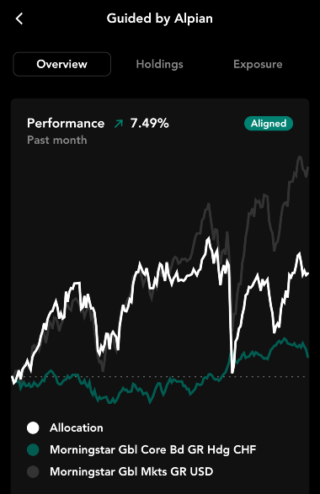
Guided by Alpian
📌 Why this is an advantage?
- It offers greater flexibility, especially for entrepreneurs or expatriates.
- No need to wait for a physical meeting to adjust your investment strategy.
- Transparent tracking with real-time updates on investment performance.
🔹 A Hybrid Approach: Technology and Human Expertise
Unlike robo-advisors (automated investment services), new private banks don’t rely solely on artificial intelligence. They combine digital tools with human advisors, offering the best of both worlds:
✅ Artificial intelligence for:
✔ Optimizing asset allocation according to your profile
✔ Automating certain investment decisions to minimize risks
✔ Monitoring real-time market opportunities
✅ Human expertise for:
✔ Providing advice tailored to your life goals and tax situation
✔ Responding to more complex needs (estate planning, multi-currency management)
✔ Offering personalized support, like in a traditional private bank
🔹 Optimized Portfolios Through ETFs: An Alternative to Active Funds
Traditionally, private banks invested in active funds, which are often expensive and underperform compared to stock market indices.
✅ New private banks focus on ETFs (Exchange-Traded Funds), which offer:
✔ Much lower fees than active funds
✔ Automatic diversification, allowing access to hundreds of stocks or bonds in a single product
✔ Better long-term performance compared to traditional funds
📌 Why this change?
- Clients benefit from better net returns over the long term.
- Using ETFs allows for a more accessible and transparent investment strategy.
Alpian, for example, builds its portfolios using only ETFs, with an approach aligned with traditional private banks (Growth, Balanced, Conservative portfolios) while minimizing fees.
💡 Conclusion: What New Private Banks Change
New private banks are transforming the market by breaking traditional norms:
✅ Access from CHF 2,000, compared to CHF 1M previously
✅ Reduced and transparent fees, providing better returns for clients
✅ Services available online, with no loss of quality in support
✅ Use of ETFs, enabling more efficient and cost-effective management
In Switzerland, these developments open private banking to a broader audience, while still retaining the essence of what makes it strong: expert advice, advanced wealth management, and a tailored approach.
 Alpian Promo Code: ALPNEO – Get 120 CHF
Alpian Promo Code: ALPNEO – Get 120 CHF
Don’t have an Alpian account yet? Use the promo code ALPNEO before March 31, 2026 to get 120 CHF in bonus 🙌
How does the bonus work?
– 55 CHF after depositing at least 500 CHF.
– Up to 65 CHF in investment fee credits.
✅ The Alpian account is free and multi-currency (CHF, EUR, USD, GBP), with an optional Metal Visa Debit card.
Get 120 CHF with Alpian ➡️
Management Fees in Private Banks: A More Transparent Approach
Management fees are a key factor when choosing a private bank in Switzerland. For a long time, these costs were opaque and complex, making it difficult to compare institutions. Today, new private banks are adopting a more transparent approach, simplifying their pricing and offering more competitive models.
So, how much does a private bank really cost? What hidden fees should be monitored? And how are new players like Alpian breaking the mold in Switzerland?
🔹 What Fees Are Applied by Traditional Private Banks?
Swiss traditional private banks apply several types of fees that can quickly accumulate:
1️⃣ Management Fees:
- Annual deduction on assets under management.
- On average, between 0.8% and 1.5% per year.
- Example: For a portfolio of CHF 1 million, a client could pay between CHF 8,000 and CHF 15,000 per year in management fees alone.
2️⃣ Transaction Fees:
- Charged when buying or selling assets (stocks, bonds, funds).
- Can represent 0.2% to 1% of the invested amount per transaction.
3️⃣ Custody and Safe-Keeping Fees:
- Charged for the safekeeping of securities and assets.
- Often charged as a percentage or annual flat fee.
4️⃣ Investment Advisory Fees:
- Some institutions charge additional fees for access to wealth management experts.
5️⃣ Hidden Fees:
- Margins applied on currency conversions.
- Entry and exit fees on certain investments (especially active funds).
- Additional costs for specialized services such as estate planning.
🔹 How Do New Swiss Private Banks Simplify Fees?
In the face of this complexity and high costs, new private banks like Alpian are adopting a more modern and transparent approach.
✅ Simpler and Lower Pricing:
- Reduced management fees, often below 0.8%.
- Removal or reduction of hidden fees (no excessive custody fees or entry/exit fees).
- Access to professional management without additional cost for advice.
✅ Use of ETFs Instead of Active Funds:
- Traditional private banks often invest in actively managed funds, which charge high fees (1.5% to 2%).
- New private banks, like Alpian, use exclusively ETFs, which have much lower fees (often 0.1% to 0.3%), thus improving the net return for the client.
✅ Elimination of Hidden Transaction Fees:
- Some digital banks integrate the costs directly into the overall management fees.
- This means fewer surprise fees on every purchase or sale of assets.
💡 Real-World Example:
🔹 An investor with CHF 500,000 under management in a traditional private bank often pays between CHF 5,000 and CHF 7,500 per year in management fees, not counting transaction fees.
🔹 With Alpian or a digital private bank, these fees could be reduced to around CHF 3,000 due to a lighter structure.
🔹 Exchange Fees: A Trap to Watch Out For
Another important point concerns currency conversion fees. In Switzerland, many clients invest in CHF, EUR, USD, or GBP, and each currency transaction can result in:
- Hidden margins on the exchange rate (often between 0.5% and 1.5% in traditional banks).
- Additional fees if the investor wants to hold a multi-currency account.
Some digital private banks offer transparent interbank rates, without hidden surcharges, which can result in significant savings in the long term.
🔹 Fee Comparison Between Traditional Private Banks and Digital Private Banks
| Fee Type | Traditional Private Banking | New private bank (e.g., Alpian) |
|---|---|---|
| Annual Management Fee | 0.8% – 1.5% (or more) | 0.5% – 0.75% |
| Transaction Fees | 0.2% – 1% per transaction | Included or very low |
| Custody and Safekeeping Fees | CHF 100 – 500 / year | Included |
| Investment Product Fees | 1.5% – 2% for active funds | 0.1% – 0.3% for ETFs |
| Exchange Fees | 0.5% – 1.5% | Interbank rate |
| Advisory Fees | Additional | Included |
💡 Conclusion: More Transparent Fees
Management fees in Swiss private banking have long been high and opaque. Today, thanks to the emergence of new digital private banks like Alpian, it is possible to benefit from high-quality wealth management at a lower cost.
✅ Fewer fees = higher net returns for investors
✅ Increased transparency = no nasty surprises
✅ Simplified management = fewer hidden costs and better accessibility
If you’re considering a private bank in Switzerland, comparing fees is essential to maximize the profitability of your wealth in the long term.
 Alpian Promo Code: ALPNEO – Get 120 CHF
Alpian Promo Code: ALPNEO – Get 120 CHF
Don’t have an Alpian account yet? Use the promo code ALPNEO before March 31, 2026 to get 120 CHF in bonus 🙌
How does the bonus work?
– 55 CHF after depositing at least 500 CHF.
– Up to 65 CHF in investment fee credits.
✅ The Alpian account is free and multi-currency (CHF, EUR, USD, GBP), with an optional Metal Visa Debit card.
Get 120 CHF with Alpian ➡️
Investment Strategies in Private Banking: A Common Model for All Institutions
Swiss private banks, whether traditional or digital, adopt standardized investment strategies based on the client’s risk profile. Whether you are with a large traditional private bank like Julius Baer, Lombard Odier, Pictet, UBS Wealth Management or a modern private bank like Alpian, the approach remains largely the same: adjusting asset allocation based on your risk tolerance and financial goals.
So, what does a private banking investment strategy really consist of? Why is the use of ETFs by some new private banks not a limitation?
🔹 The Principle of Model Portfolios in Private Banking
All Swiss private banks operate according to a structured portfolio model, based on optimized asset allocation according to the client’s risk profile.
📌 The 3 Most Common Investment Profiles:
| Portfolio Type | Share of shares (%) | Bond Share (%) | Typical Profile |
|---|---|---|---|
| Conservative | 20 – 40% | 60 – 80% | Conservative investor seeking stability |
| Balanced | 50 – 60% | 40 – 50% | Investor seeking a good balance between risk and return |
| Dynamic (Growth) | 80 – 100% | 0 – 20% | Investor focused on long-term growth |
💡 What This Means for You:
- No matter which private bank you choose, the asset allocation follows this model.
- The variations lie in the choice of financial products, but the investment philosophy remains the same.
🔹 Stocks, Bonds, and Diversification: A Standard in Private Banking
All private banks use the same asset classes to build a diversified portfolio:
✅ Stocks: The main long-term growth driver. In private banking, the selection may include Swiss and international stocks, emerging markets, and strategic sectors (technology, healthcare, energy…).
✅ Bonds: A key element for stability and protection against volatility. Private banks often invest in government bonds or strong corporate bonds.
✅ Alternatives and Currencies: Some private banks also offer investments in gold, commodities, private equity, or hedge funds, although these solutions are less accessible in digital banks.
🔹 Why the Use of ETFs in Private Banking is Not a Limitation?
Traditionally, Swiss private banks used actively managed funds (managed by professionals trying to beat the market). But this approach is being questioned because:
- Most active funds underperform stock market indices over the long term.
- Their fees are high (1.5% – 2% per year, plus the bank’s management fees).
💡 ETFs: A More Efficient and Cost-Effective Alternative
New private banks like Alpian use only ETFs (Exchange Traded Funds) to build their portfolios. Why?
✔ Much lower fees (typically between 0.1% and 0.3% versus 1.5% to 2% for active funds).
✔ Often better performance over the long term compared to actively managed funds.
✔ Automatic diversification, allowing access to hundreds of stocks or bonds in a single product.
🔎 Example:
- A traditional private bank might offer an active fund in global stocks charging 2% annual fees.
- A bank like Alpian would use an MSCI World ETF with only 0.2% fees, offering an equivalent or even better performance over the long term.
🔹 Manage Your Portfolio Yourself or Use a Private Bank?
With the rise of platforms like Swissquote, many investors are wondering whether it’s really useful to go through a private bank. Here are the main differences:
| Criteria | Traditional private banking | Digital Private Banking (Alpian) | Platform like Swissquote |
|---|---|---|---|
| Support | Dedicated advisor | Digital Advisor Available | 100% independent management |
| Investment Strategy | Active funds and mixed management | Optimized ETF Portfolios | Free investments |
| Fees | 1% – 1.5% + hidden fees | 0.5% – 0.75%, Transparent | Transaction fees, but no management |
| Simplicity | Delegated management | Semi-Automated Management with Monitoring | 100% investor management |
| Personalization | Tailor-made strategies | Optimized, Yet Standardized Strategies | Free investment, without advice |
💡 In Summary:
- If you like managing your investments yourself and are looking for the lowest possible fees, a platform like Swissquote is a good option.
- If you want structured support, but with reduced fees, a digital private bank like Alpian offers a good compromise.
- If you’re looking for ultra-personalized service with more complex products, a traditional private bank may be justified, but with higher costs.
💡 Conclusion: Similar Investment Strategies, Different Fees
All Swiss private banks use similar investment strategies, based on the client’s risk profile (Conservative, Balanced, Dynamic). The real difference lies in the chosen products and the fees applied.
With the rise of digital private banks, like Alpian, investment strategies remain identical to traditional banks, but with lower fees thanks to ETFs and simplified management via a digital platform.
If you’re looking for optimized wealth management without excessive fees, new private banks offer a credible alternative to traditional institutions.
 Alpian Promo Code: ALPNEO – Get 120 CHF
Alpian Promo Code: ALPNEO – Get 120 CHF
Don’t have an Alpian account yet? Use the promo code ALPNEO before March 31, 2026 to get 120 CHF in bonus 🙌
How does the bonus work?
– 55 CHF after depositing at least 500 CHF.
– Up to 65 CHF in investment fee credits.
✅ The Alpian account is free and multi-currency (CHF, EUR, USD, GBP), with an optional Metal Visa Debit card.
Get 120 CHF with Alpian ➡️
Which is the Best Private Bank in Switzerland?
Switzerland is one of the global centers of private banking, with a large number of institutions specializing in wealth management. Whether you’re looking for ultra-personalized service with a dedicated private banker or a more accessible solution via a digital bank, there is an offer tailored to every investor profile.
But how do you choose the best private bank in Switzerland? It all depends on your needs, your wealth level, and your investment approach.
🔹 How Many Private Banks Are There in Switzerland?
Switzerland has about 50 private banks, ranging from large historical institutions to new digital players. These banks can be divided into three main categories:
| Types of Private Banking | Key Features | Examples |
|---|---|---|
| Traditional Private Banks | Ultra-personalized support, high entry threshold, high fees | Julius Baer, Lombard Odier, Pictet, UBS Wealth Management |
| Digital Private Banks | Hybrid management (human + digital), lower entry threshold, reduced fees | Alpian, Selma, True Wealth |
| General Banks with Private Wealth Management | Intermediate offering between retail banking and private banking | UBS My Way, PostFinance E-Invest, Vontobel Volt |
| Independent Investment Solutions | Trading platforms or portfolio management without a mandate | Neon Invest, Radicant, Swissquote, Yuh |
💡 Note: True Wealth is a wealth manager with a collective investment scheme license, Selma is a robo-advisor managed by VZ Depotbank.
🔹 How to Choose the Best Private Bank in Switzerland?
Choosing the best private bank depends on several key criteria:
1️⃣ Your Wealth Level
💰 More than CHF 1M → Opt for a traditional private bank (Julius Baer, Lombard Odier, Pictet).
💰 Between CHF 100K and 1M → An intermediate bank like UBS Wealth Management might be of interest.
💰 Less than CHF 100K → A digital private bank like Alpian offers a good compromise.
2️⃣ Your Need for Support
👨💼 You want a dedicated advisor at all times → Traditional private bank
📱 You want mixed management (advice + digital) → Alpian
🖥 You prefer to manage your investments yourself → Swissquote
3️⃣ Fee Structure
If you prioritize low management costs, new digital private banks like Alpian are more advantageous than a traditional bank, where fees can exceed 1% per year.
4️⃣ Access to Investment Products
If you’re looking for complex investments (private equity, hedge funds, private bonds, structured real estate), a traditional private bank will be more suited.
If you want effective management with reduced fees through ETFs, a digital private bank is an excellent option.
🔹 Comparison: Traditional Private Bank vs Digital Private Bank
| Criteria | Traditional Private Banking | Digital private banking (Alpian, Swissquote) |
|---|---|---|
| Support | Dedicated Private Advisor | Hybrid advice (human + digital) |
| Accessibility | CHF 500K – 1M minimum | From CHF 10,000 |
| Fees | 0.8% – 1.5% annual fees | 0.5% – 0.75%, more transparent |
| Investments | Stocks, bonds, private equity, hedge funds | Diversified ETF portfolios |
| Customer Experience | Traditional model with in-branch appointments | Mobile app and real-time monitoring |
| Flexibility | Advanced customization | Optimized and simplified management |
🔹 Traditional Private Banks: The Choice for the Wealthy
Swiss traditional private banks offer ultra-personalized service, often reserved for wealthy clients with complex wealth management needs.
| Bank | Key strengths | Entry threshold | Management fees |
|---|---|---|---|
| Julius Baer | International expertise | CHF 1M+ | 1% – 1.5% |
| Lombard Odier | Tailor-made strategies | CHF 500K – 1M | 0.8% – 1.2% |
| Pictet & Cie | Exclusive wealth management | CHF 1M+ | 0.8% – 1.5% |
| UBS Wealth Management | Wide range of solutions | CHF 500K – 1M | 0.8% – 1.2% |
⚠ Limitations:
- High entry barriers (CHF 500K to CHF 1M).
- High management fees.
- A traditional model requiring in-person meetings.
🔹 Digital Private Banks: A More Accessible Alternative
These banks combine human management and digital tools, offering management mandates starting at CHF 2,000.
| Bank / Neobank | Management Type | Entry threshold | Management Fees |
|---|---|---|---|
| Alpian | Discretionary Management (ETF) | CHF 2,000 | 0.75% |
| Swissquote Invest | Diversified Management Mandate | CHF 2,000 | Variable |
| UBS My Way | Automated Management Mandate | CHF 2,000 | 0.8% – 1.2% |
| PostFinance E-Invest | Automated Management | CHF 5,000 | 0.75% |
| Vontobel Volt | Active Strategies | CHF 2,000 | 0.75% – 1.2% |
| Selma Finance | Automated Robo-Advisor | CHF 2,000 | 0.68% |
| True Wealth | Tax-Optimized Mandate | CHF 8,500 | 0.50% – 0.65% |
💡 Advantages:
- Reduced fees (often less than 0.8%).
- Accessible from CHF 2,000 (compared to CHF 500K to 1M for traditional private banks).
- Semi-automated management with real-time tracking.
🔹 Other Solutions: Investing Without a Management Mandate
Some banks allow you to invest independently, without a management mandate.
| Bank / Neobank | Type of Offer | Management mandate? |
|---|---|---|
| Neon Invest | Stocks, ETFs | ❌ No |
| Radicant | Sustainable Investing (SDGs) | ❌ No |
| Yuh Invest | Stocks, ETFs, Crypto | ❌ No |
💡 Ideal For:
- Independent investors wishing to manage their own investments.
- Those who want access to financial markets without delegating their portfolio.
💡 Conclusion: Which Is the Best Option to Open an Account?
Swiss private banks offer high security and support, but the choice will depend on your wealth, investment expectations, and the simplicity of the process you seek.
✅ If you have more than CHF 1M in capital and want exclusive service → Opt for a traditional private bank like Julius Baer, Lombard Odier or Pictet.
✅ If you’re looking for private management accessible from CHF 2,000 → Alpian is an excellent option.
✅ If you want a simple and quick process, without physical meetings → Prefer a digital private bank where the opening is fully online.
 YUH Promo Code: YUHNEO
YUH Promo Code: YUHNEO
Don't have a YUH account yet? Use our referral code to open your free YUH Bank account!
Use the promo code YUHNEO before March 31, 2026 to receive a bonus of 50 CHF in Trading Credits + 5 CHF (250 SWQ) for FREE 🙌
Get 55 CHF Free with YUH ➡️
How to Open an Account in a Swiss Private Bank?
Opening an account in a Swiss private bank is a more complex process than in a traditional bank. These institutions apply strict criteria and require proof of the source of funds due to transparency regulations and anti-money laundering efforts.
Whether you choose a traditional private bank or a digital private bank, here are the steps to follow to open an account.
🔹 Eligibility Conditions: Who Can Open an Account in a Swiss Private Bank?
Before starting the process, make sure you meet the following criteria:
✅ Have the required minimum capital:
- Traditional private banks: Often require CHF 500K to CHF 1M in assets under management.
- Digital private banks: Such as Alpian, allow account opening from CHF 2,000.
✅ Provide proof of identity and source of funds:
- Valid passport or ID card.
- Recent proof of residence (electricity bill, residence certificate).
- Declaration of the source of funds (income, inheritance, property sale, etc.).
✅ Be a Swiss or international resident:
- Most Swiss private banks accept non-residents, but some may impose restrictions based on the country of origin.
🔹 Steps to Open an Account in a Swiss Private Bank
The process varies depending on whether you choose a traditional private bank or a digital private bank, but the major steps are similar.
1️⃣ Choose the Bank Suitable for Your Profile
💰 Do you have over CHF 1M? → Choose Pictet, Lombard Odier, or Julius Baer.
💰 Do you have between CHF 100K and 1M? → UBS Wealth Management or Vontobel Volt.
💰 Do you want an account with more modest capital? → Alpian, Selma, or True Wealth are accessible options starting from CHF 2,000.
2️⃣ Prepare the Required Documents
📑 Identity and residence: Passport, residence permit.
📑 Proof of source of funds: Employment contracts, bank statements, notarized certificates.
📑 Tax information: Some banks require a tax declaration depending on the country of residence.
3️⃣ Schedule an Appointment with a Private Advisor (Traditional Banks)
- Most traditional private banks require an in-person or video conference meeting.
- Objective: To understand your financial situation, investment goals, and risk tolerance.
- This meeting also allows explaining available services and applied fees.
4️⃣ Complete the Account Opening Process
🏦 At a traditional private bank → Signing of contract documents in-person or by secure mail.
📱 At a digital private bank → 100% online process via a mobile app and digital identity verification (e.g., Alpian, Swissquote).
5️⃣ Make the Initial Deposit
Once the account is validated, you will need to make an initial deposit according to the bank’s requirements:
- CHF 500K – 1M for traditional private banks.
- CHF 2,000 – 50,000 for digital private banks.
🔹 Comparison of Account Opening Procedures Between Traditional and Digital Private Banks
| Criteria | Traditional Private Banking | Digital Private Banking (Alpian, Swissquote) |
|---|---|---|
| Minimum capital | CHF 500K – 1M+ | From CHF 2,000 |
| Process | At-branch appointment, physical signature | 100% online, digital verification |
| Deadlines | 1 to 4 weeks | 24 hours to a few days |
| Required supporting documents | Identity, address, source of funds, tax declaration | Identity, address, source of funds |
| Support | Dedicated Private Banker | Online assistance with an advisor |
🔹 Do You Need to Be a Swiss Resident to Open an Account?
No, Swiss private banks accept international clients, but with specific conditions:
- EU residents → Easier access to Swiss private banks.
- Non-EU residents → Some banks impose restrictions based on the country of origin.
- Americans (US Persons) → Access is limited due to FATCA regulations, but some private banks accept US clients with strict tax requirements.
🔹 How Long Does It Take to Open an Account?
⏳ Traditional Private Bank: 1 to 4 weeks
- Thorough document verification.
- Internal validation and contract signing.
- First meetings with a private banker.
⏳ Digital Private Bank: 24h to a few days
- Online identity verification.
- Automatic document validation.
- Immediate access to the investment management interface.
🔹 Can You Open an Account Online?
📱 Yes, but only with certain digital private banks.
- Alpian, Selma, Swissquote, True Wealth allow full online account opening.
- Julius Baer, Lombard Odier, Pictet require a meeting with an advisor before validation.
💡 Digital private banks greatly simplify the account opening process, with shorter timelines and less paperwork.
💡 Conclusion: What Is the Best Option to Open an Account?
Swiss private banks offer high levels of security and support, but the choice will depend on your wealth, investment expectations, and the simplicity of the process you are looking for.
✅ If you have capital exceeding CHF 1M and want exclusive service → Choose a traditional private bank like Julius Baer, Lombard Odier, or Pictet.
✅ If you’re looking for private management accessible from CHF 2,000 → Alpian is an excellent option.
✅ If you want a simple and quick process, without physical appointments → Prefer a digital private bank where the opening is fully online.
 Alpian Promo Code: ALPNEO – Get 120 CHF
Alpian Promo Code: ALPNEO – Get 120 CHF
Don’t have an Alpian account yet? Use the promo code ALPNEO before March 31, 2026 to get 120 CHF in bonus 🙌
How does the bonus work?
– 55 CHF after depositing at least 500 CHF.
– Up to 65 CHF in investment fee credits.
✅ The Alpian account is free and multi-currency (CHF, EUR, USD, GBP), with an optional Metal Visa Debit card.
Get 120 CHF with Alpian ➡️
Who Should Consider Private Banking?
Private banking is no longer reserved for the ultra-wealthy. While once only the very wealthy had access to wealth management services, the emergence of digital private banks and management mandates accessible from CHF 2,000 has expanded the audience.
So, who can truly benefit from private banking services? Whether you’re a wealthy individual, entrepreneur, or investor looking to structure your wealth, private banking can be an interesting option.
🔹 Ideal Client Profiles for Private Banking
1️⃣ Individuals with Significant Wealth
💰 If you have more than CHF 500,000 to 1M+ to invest, a traditional private bank:
✔ A dedicated private advisor and a tailored wealth strategy.
✔ Access to specialized investments (private equity, hedge funds, private bonds).
✔ Exclusive services like estate planning and international tax optimization.
💡 Suitable Banks: Julius Baer, Lombard Odier, Pictet, UBS Wealth Management.
2️⃣ Investors Seeking Optimized Management from CHF 2,000
📈 If you have between CHF 2,000 and 500,000, you can benefit from a structured management mandate with reduced fees via a digital private bank.
✔ Easy access to diversified portfolios based on ETFs.
✔ Lower fees than traditional private banks (0.5% – 0.75% versus 1% or more).
✔ Hybrid management: human advice + digital tools.
💡 Suitable Banks: Alpian, Selma, Swissquote, True Wealth.
3️⃣ Entrepreneurs and Freelancers
🏢 If you’re an entrepreneur, business owner, or freelancer, private banking can help you:
✔ Manage your company’s treasury and investments.
✔ Optimize your personal and professional wealth through tailored tax solutions.
✔ Prepare your succession and protect your family.
💡 Suitable Banks: Alpian, Lombard Odier, UBS Wealth Management, Vontobel Volt.
4️⃣ Families Looking to Structure Their Wealth Across Generations
👨👩👧👦 If you want to organize the transfer of your wealth, a private bank can offer you:
✔ Advanced estate planning (wills, donations).
✔ Family wealth protection to prevent it from being diluted.
✔ Financial education for heirs for responsible asset management.
💡 Suitable Banks: Julius Baer, Lombard Odier, Pictet.
5️⃣ Expats and International Residents
🌍 If you’re an expat or live outside Switzerland, some Swiss private banks allow you to:
✔ Hold a multi-currency account (CHF, EUR, USD, GBP…).
✔ Access international investments with optimized tax treatment.
✔ Protect your wealth from economic fluctuations in your country of residence.
💡 Suitable Banks: Alpian, Julius Baer, UBS Wealth Management.
🔹 Traditional Private Bank vs Digital Private Bank: Which Profile for Which Solution?
| Profile | Traditional private banking | Digital Private Banking (Alpian, Swissquote) |
|---|---|---|
| Assets greater than CHF 1 million | ✅ Customized wealth management, complex investments | ❌ Not suitable |
| Investor with CHF 10,000 to 500,000 | ❌ Limited access | ✅ Structured management mandate, reduced fees |
| Entrepreneur/Self-employed | ✅ Advanced wealth and tax management | ✅ Optimized but less personalized management |
| Family wishing to prepare for succession | ✅ Estate planning, asset protection | ⚠️ Limited services |
| Expatriate seeking an account in Switzerland | ✅ Access to international investments | ✅ Multi-currency, but without advanced planning |
🔹 Why Consider Private Banking Rather Than a Regular Bank?
💡 Private banks offer services that regular banks do not provide:
✅ Customized support with a dedicated advisor.
✅ Optimized investment strategies (discretionary management, allocation in ETFs or active funds).
✅ A comprehensive wealth approach, including taxation, estate planning, and asset protection.
✅ Better confidentiality and solutions tailored to international profiles.
🔹 Is Private Banking Reserved for the Ultra-Wealthy?
No, with the emergence of digital private banks, wealth management has become more accessible. Today, it is possible to
benefit from a management mandate starting from CHF 2,000, while traditional banks often require CHF 500,000 to 1M minimum.
💰 If you’re an individual investor looking to grow your capital while benefiting from financial advice, you now have options tailored to your profile.
💡 Conclusion: Who Should Consider Private Banking?
In 2026, private banking is no longer an inaccessible luxury. There is now a solution for every investor profile, from wealthy clients to young professionals looking to structure their savings.
✅ If you’re a wealthy individual looking for ultra-personalized service, a traditional private bank is the best choice.
✅ If you’re looking for optimized management starting at CHF 2,000 with reduced fees, a digital private bank like Alpian or Swissquote Invest is an effective alternative.
✅ If you’re an entrepreneur or want to structure your family wealth, private banking will help you plan for succession and optimize your assets.
✅ If you’re an expat or non-resident, private banking will help you secure your wealth internationally.
Conclusion on Private Banking in Switzerland
Swiss private banking has long been seen as a service reserved for the wealthy, requiring a large minimum capital and involving high management fees. Today, the rise of digital private banks, like Alpian, has transformed this market, making wealth management more accessible, transparent, and flexible.
Choosing the best private bank in Switzerland depends on your financial profile, goals, and investment approach:
✅ If you’re a wealthy client seeking exclusive service, a traditional private bank like Pictet, Lombard Odier or Julius Baer remains the best option.
✅ If you’re looking for private management with reduced fees starting from CHF 2,000, digital private banks like Alpian or True Wealth offer optimized solutions.
✅ If you want to manage your investments independently while having access to advanced tools, platforms like Swissquote, Neon Invest, or Yuh are suitable.
Whether you’re an individual investor, entrepreneur, expat, or family looking to structure your wealth, Switzerland now offers a wide range of private banking services.
💡 In 2026, private banking is no longer an inaccessible luxury. There are now solutions tailored to all investor profiles, combining human expertise and technology for optimized wealth management.
 Alpian Promo Code: ALPNEO – Get 120 CHF
Alpian Promo Code: ALPNEO – Get 120 CHF
Don’t have an Alpian account yet? Use the promo code ALPNEO before March 31, 2026 to get 120 CHF in bonus 🙌
How does the bonus work?
– 55 CHF after depositing at least 500 CHF.
– Up to 65 CHF in investment fee credits.
✅ The Alpian account is free and multi-currency (CHF, EUR, USD, GBP), with an optional Metal Visa Debit card.
Get 120 CHF with Alpian ➡️
List of Private Banks in Switzerland
Frequently Asked Questions (FAQ) about Private Banks in Switzerland
✅ What is a private bank in Switzerland?
A private bank in Switzerland is a financial institution specializing in wealth management for high-net-worth clients. It offers personalized services such as investment management, estate planning, and tax advice.
✅ Who can open an account in a Swiss private bank?
Anyone with the required minimum capital set by the bank can open an account. Traditional private banks often require CHF 500,000 to 1 million, while digital private banks like Alpian accept clients from CHF 10,000.
✅ How many private banks are there in Switzerland?
Switzerland has around 50 private banks, ranging from historical institutions like Pictet, Lombard Odier, and Julius Baer to digital private banks like Alpian and Swissquote Invest.
✅ What is the best private bank in Switzerland?
There is no one-size-fits-all answer, it depends on your wealth and needs. Large fortunes often prefer Pictet, Lombard Odier, or Julius Baer, while clients looking for private management from CHF 2,000 can choose Alpian or True Wealth.
✅ What are the advantages of private banking over regular banking?
A private bank offers:
- Personalized service with a dedicated advisor.
- More sophisticated investment solutions (private equity, hedge funds, private bonds).
- Comprehensive wealth management including taxation and estate planning.
- Better confidentiality and solutions tailored to international profiles.
✅ Can non-residents open an account in a Swiss private bank?
Yes, many Swiss private banks accept international clients, but some restrictions may apply depending on the country of residence. U.S. clients (US Persons) have limited access due to FATCA regulations.
✅ What are the fees for a private bank?
Traditional private banks generally charge 0.8% to 1.5% annual fees on assets under management. Digital private banks like Alpian apply more competitive fees, around 0.5% – 0.75%.
✅ What is the difference between a traditional private bank and a digital private bank?
Traditional private banks offer ultra-personalized service with a dedicated advisor, but require high capital. Digital private banks, like Alpian, provide hybrid management (human + digital) with reduced fees and accessibility from CHF 10,000.
✅ Can I open an account in a private bank online?
Yes, but only at certain digital private banks. Alpian and True Wealth allow fully online account openings, while traditional private banks require a meeting with an advisor before validation.
✅ What is the process to open an account in a Swiss private bank?
- Choose the bank suited to your profile (traditional or digital).
- Prepare the required documents (identity, proof of residence, source of funds).
- Make an initial deposit according to the bank’s requirements.
- Sign the contract online or in-person, depending on the bank chosen.
✅ Do I need to pay extra taxes for having an account in a private Swiss bank?
No, but you must declare your assets according to the tax laws of your country of residence. Some private banks offer tax support to optimize your situation.
✅ Do Swiss private banks guarantee account confidentiality?
Yes, Swiss banking confidentiality is renowned, but it is regulated by strict laws against money laundering and tax evasion. Switzerland cooperates with many countries for automatic information exchange (AEOI).
✅ What is the benefit of private banking if I already invest with Swissquote?
Swissquote allows you to manage your investments independently, while a private bank offers an optimized investment strategy with a personalized follow-up. If you’re looking for structured management with advice, private banking can be a complementary option.
✅ Is Alpian a real private bank?
Yes, Alpian is a digital Swiss private bank, licensed by FINMA. It offers a management mandate (“Guided by Alpian”), combining human expertise and technology, with accessibility starting from CHF 10,000.
✅ Can I get a bank card with a Swiss private bank?
Yes, most Swiss private banks offer premium credit cards like American Express Platinum or Visa Infinite cards. Alpian offers a Visa Debit Metal card included with the account.
 Alpian Promo Code: ALPNEO – Get 120 CHF
Alpian Promo Code: ALPNEO – Get 120 CHF
Don’t have an Alpian account yet? Use the promo code ALPNEO before March 31, 2026 to get 120 CHF in bonus 🙌
How does the bonus work?
– 55 CHF after depositing at least 500 CHF.
– Up to 65 CHF in investment fee credits.
✅ The Alpian account is free and multi-currency (CHF, EUR, USD, GBP), with an optional Metal Visa Debit card.
Get 120 CHF with Alpian ➡️
As the founder of Neo-banques.ch, Philippe uses several Swiss and European online banks on a daily basis, including Yuh, Alpian, N26, Wise, and Revolut for his personal and professional transactions.
He has also previously used Neon and Zak as primary accounts before migrating to other solutions.

